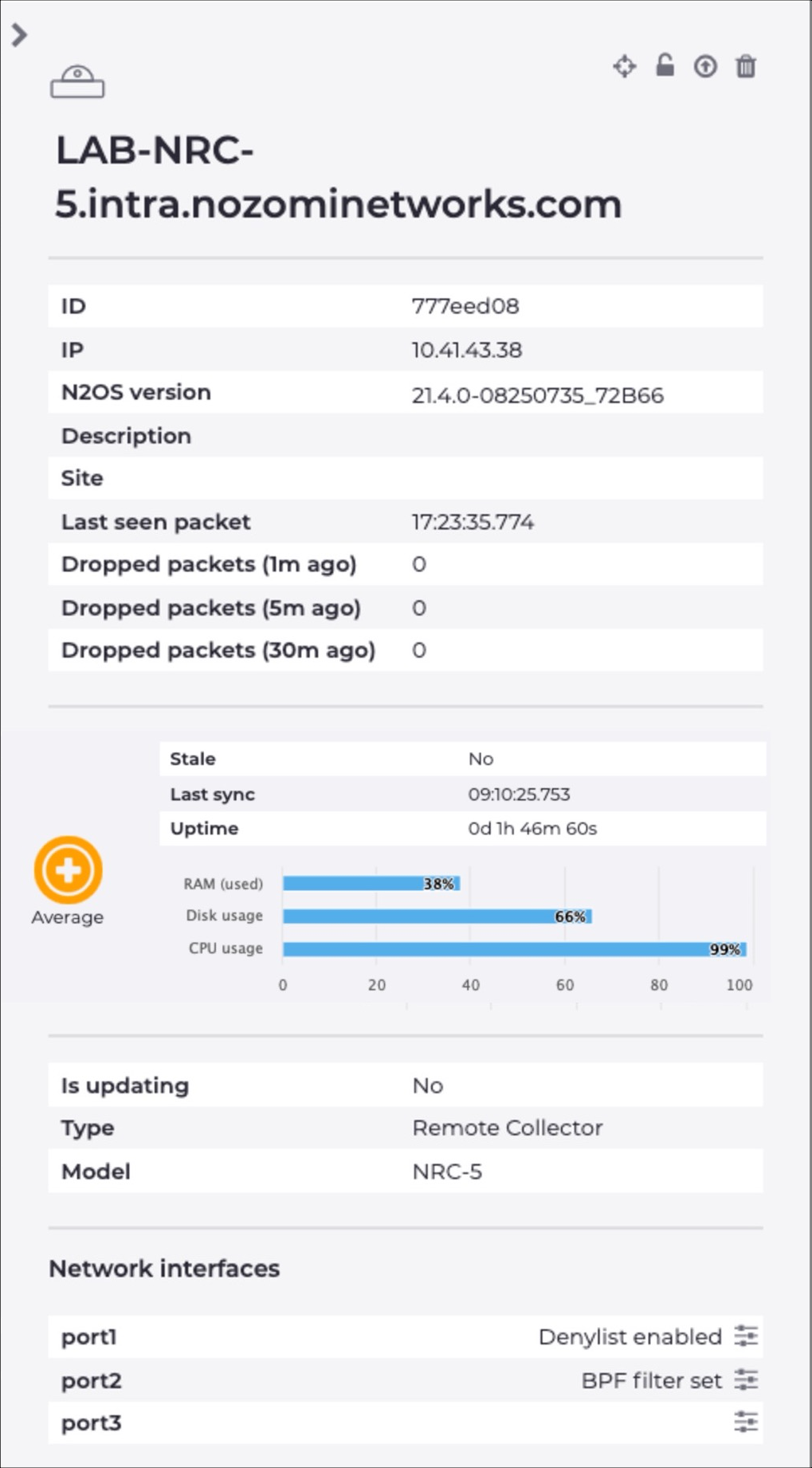Guardian with Remote Collectors
A description of how Remote Collectors and Guardians work together.
General
Guardian lets you monitor the health of all the Remote Collectors that are connected to it.
In Guardian, you can select the Sensors page to inspect the health of the Remote Collectors. When you select a Remote Collector, an information pane shows on the right with detailed information. This includes the health status of the Remote Collector, and the timestamp of the last received payload traffic.

- Upload a denylist
- Enable a denylist
- Disable a denylist
Guardian system health
UnreachablePoorAverageGood
- random-access memory (RAM): with a weight of 0.35
- central processing unit (CPU): with a weight of 0.15
- Disk: with a weight of 0.50
The unreachable status indicates a sensor that has not reached out
to the Guardian for a long time and is considered stale. The other health levels
(poor, average and good) are determined based on resource usage.
If all of the values of RAM, disk, or CPU usage are less than 80%, the status is good.
If at least one of these values is over 80%, the below formula is used to calculate the status:
Average: {RAM: 38% * 0.35 + Disk: 66% * 0.5 + CPU: 99% * 0.15} = 61%
100%-61% = 39%
If the result is less than 30, the status is Poor
If the result is greater than 30, but less than 80, the status is
Average
If the result is greater than 80, the status is Good
Packet origins
The origin of the packets is tracked internally by Guardian and is displayed in several locations, such as in the Nodes tab of the Network page.


